They call it commencement because it’s supposed to be a new beginning.
College graduation is one of life’s last clean transitions, a final passage from adolescence to adulthood that is predictable in ways other transitions rarely are. Relationships end with breakups or death, jobs often end with quitting or firing, but college is one of the only things in life that ends with a fresh start. Except when it doesn’t.
One morning in March, Clavey Robertson took a study break and climbed onto the roof of his dorm at the University of California, Berkeley. He had spent the past year working on his senior thesis on the erosion of the social-safety net since the Great Depression, and he needed to clear his head. In the distance, Robertson could see a tiny white speck: the Diamond Princess cruise ship, carrying crew members infected with COVID-19, lingering in the San Francisco Bay.
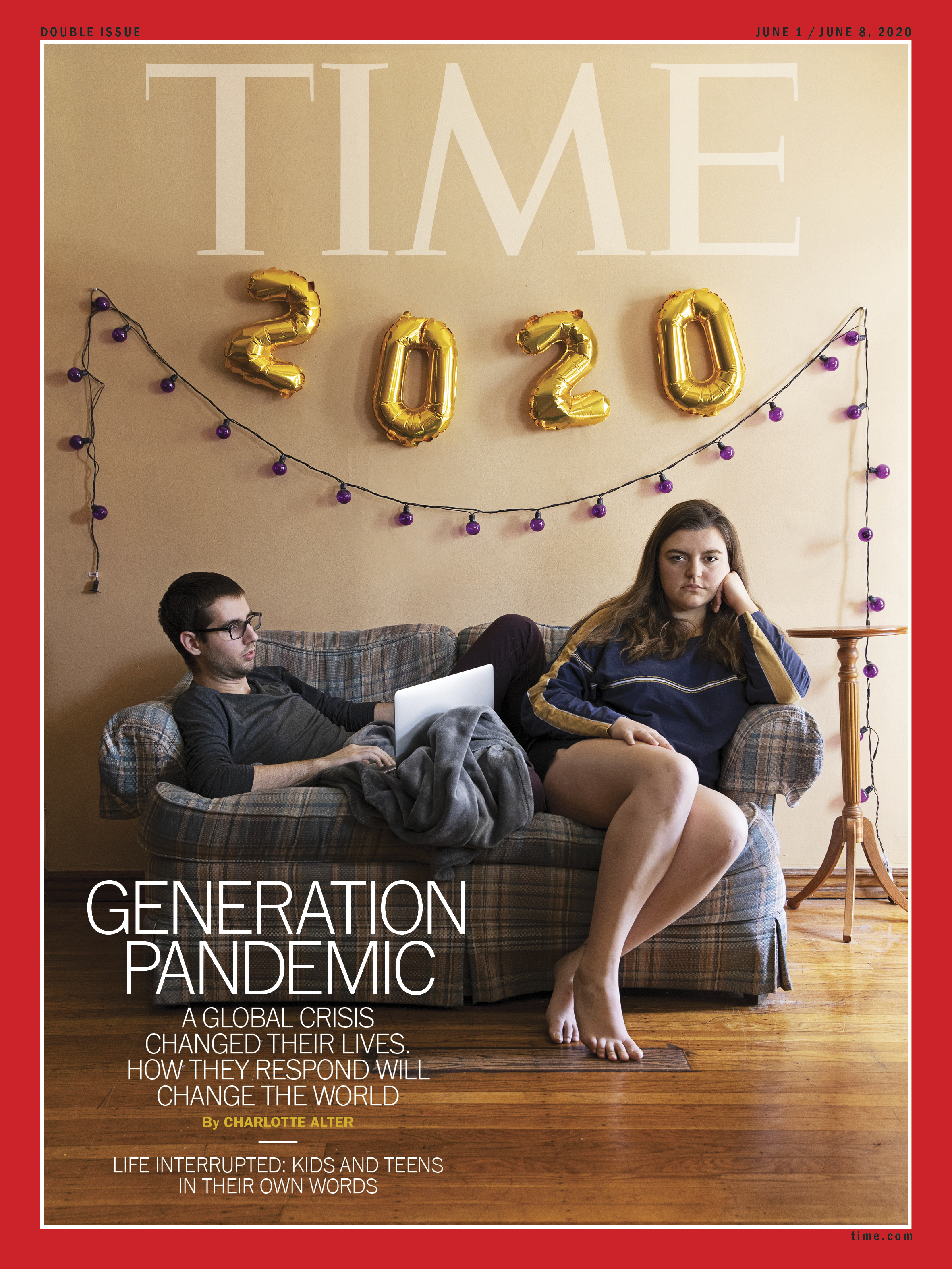
Hannah Beier, a photography major in the Drexel University Class of 2020, has been virtually photographing her classmates in quarantine. She directed this series of portraits over FaceTime.
Two months later, Robertson’s transition to adulthood is in limbo. He skipped his online commencement and he’s living in his childhood bedroom, which had been converted to a guest room. His parents have lost their travel agency work, and his own job prospects have dried up. “No longer am I just a student writing about the Great Depression,” he says. “Now there’s a depression.”
College graduation is often marked by an adjustment period, as students leave the comforts of campus to find their way in the raw wilderness of the job market. But this year’s graduates are staggering into a world that is in some ways unrecognizable. More than 90,000 Americans have died; tens of millions are out of work; entire industries have crumbled. The virus and the economic shock waves it unleashed have hammered Americans of all ages. But graduating in the midst of the coronavirus pandemic will have enduring implications on the Class of 2020: for their memories, their earning power, and their view of what it means to have a functional society. For these young adults, the pandemic represents not just a national crisis but also a defining moment.
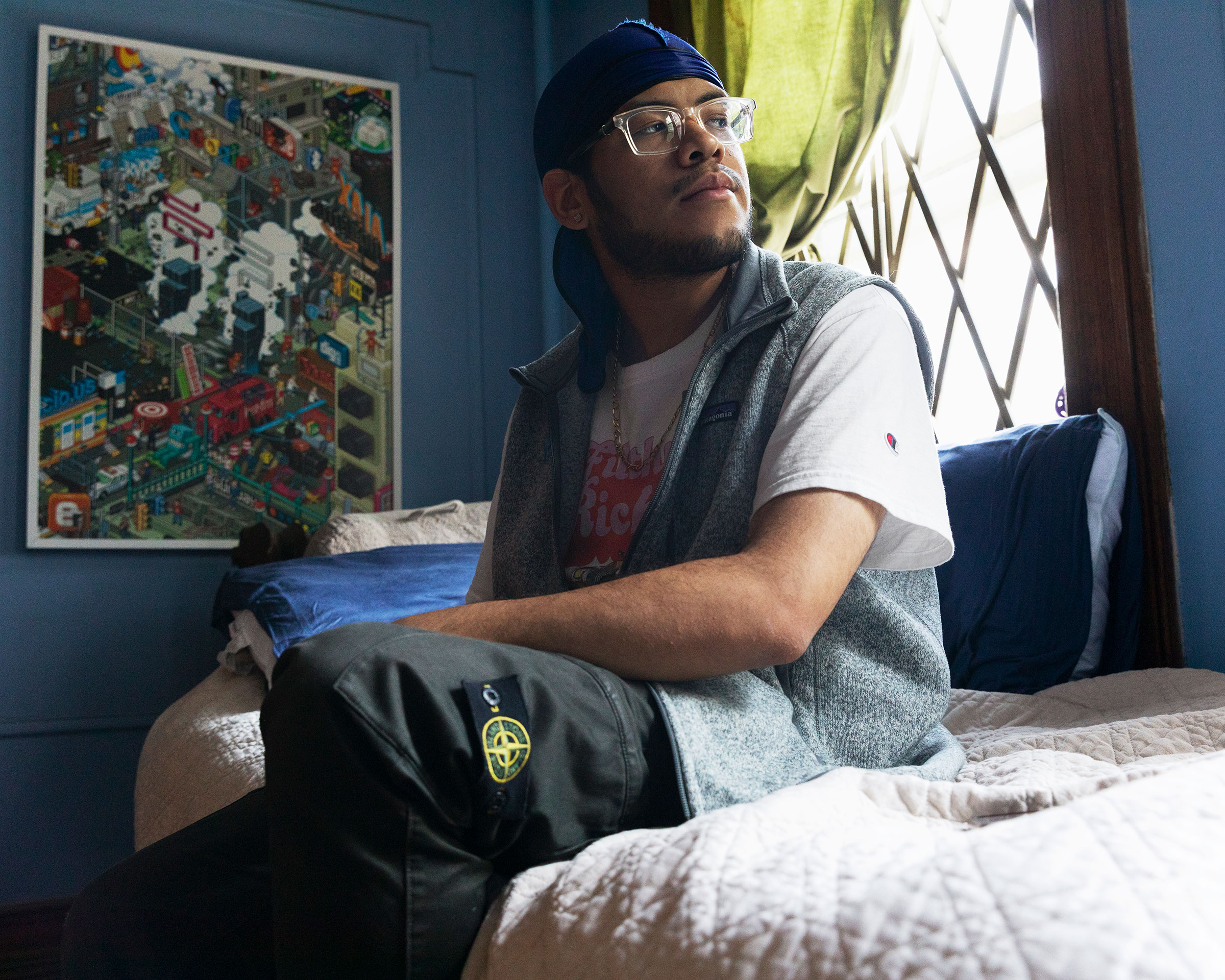
Even before COVID-19, the Class of 2020 came of age at a time of fear and uncertainty. Born largely in 1997 and 1998—among the oldest of Gen Z—the Class of 2020 were in day care and pre-kindergarten on 9/11. Their childhoods have been punctuated by school -shootings and catastrophic climate change. Their freshman year at college began with President Donald Trump’s election; their senior year ended with a paralyzing global health crisis. “We stepped into the world as it was starting to fall apart,” says Simone Williams, who graduated from Florida A&M University in an online commencement May 9. “It’s caused my generation to have a vastly different perspective than the people just a few years ahead of us or behind us.”
Researchers have found that the major events voters experience in early adulthood—-roughly between the ages of 14 and 24—tend to define their political attitudes for the rest of their lives. And the Class of 2020’s generation was -already disaffected. Only 8% of -Americans -between 18 and 29 believe the government is working as it should be, and fewer than 1 in 5 consider themselves “very patriotic,” according to the 2020 Harvard Kennedy School Institute of Politics survey of young Americans. They are at once widely skeptical of U.S. institutions and insistent on more government solutions; they’re disappointed in the current system, but hold out hope for a better one.

For the Class of 2020, COVID-19’s lasting impact may be determined by what happens next. If the rising cohort of young workers are left to fend for themselves, mass youth unemployment could lead to permanent disillusionment or widespread despair. A forceful, effective response that invests in the rising generation of American talent could restore their faith in the system.
It’s not clear to the Class of 2020 how the pandemic will play out. They just know it will change their lives. “Everything” is at stake, says Yale history major Adrian Rivera. “It’s this pivotal moment where we’ll never forget what’s done,” he says. “Or what isn’t done.”
School is often a refuge from the gusts of history. But the events that rupture the classroom routine, from President Kennedy’s assassination to 9/11, tend to be the ones that stick with students forever.
The coronavirus disrupted more class time, for more students, than almost any other event in U.S. history. It started with a scramble: The University of Washington announced on March 6 that it was cancelling in-person classes for its 57,000 students. Then Stanford University followed suit. Over the next few days, campuses from Harvard to the University of Michigan announced they’d be transitioning to online learning. Soon, hundreds of other colleges and universities followed.
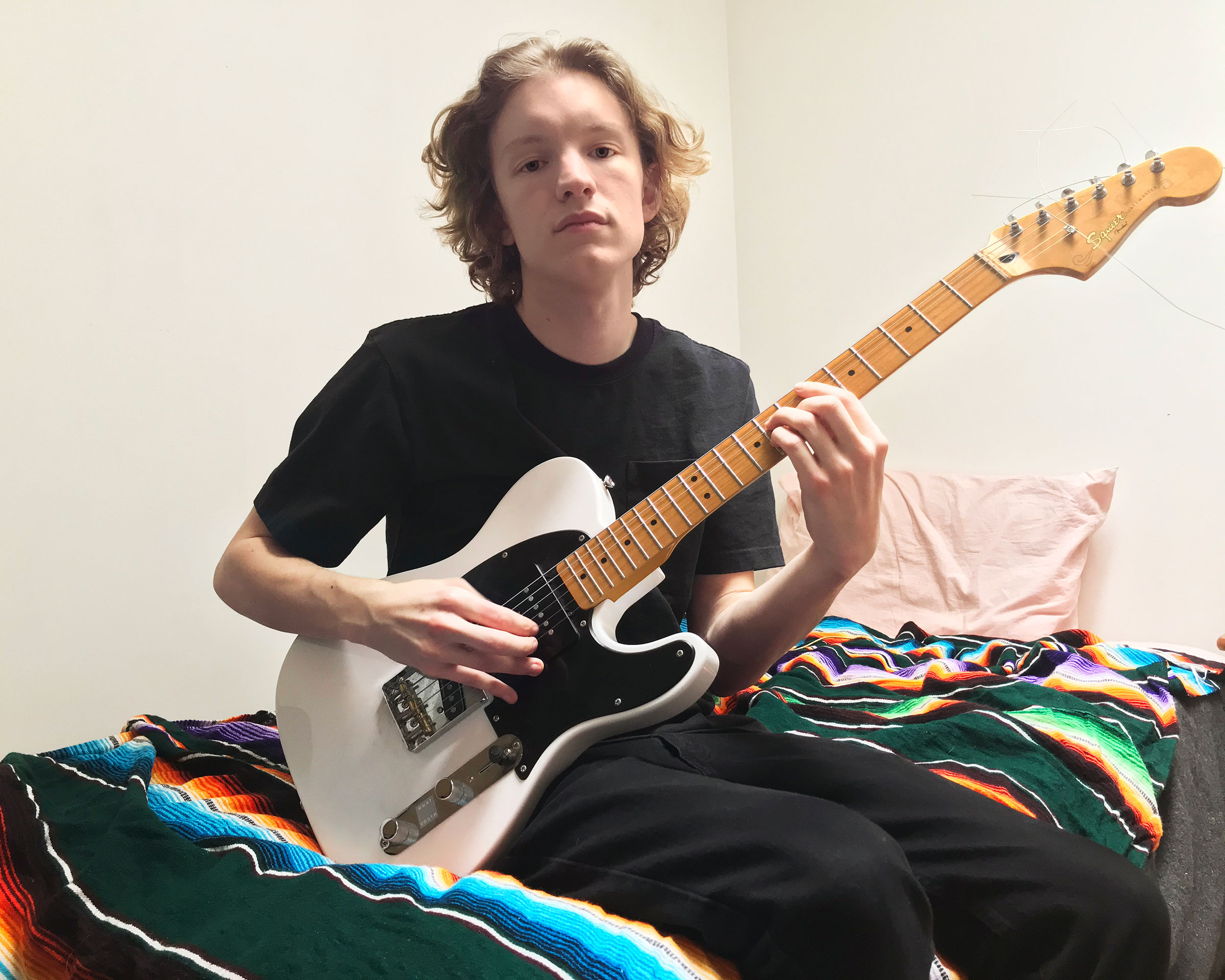
By Friday, March 13, an eerie silence fell on campuses across the nation. “Something about that day was really weird, because every time my friends and I would say ‘See you later’ or ‘Catch you after break,’ I just had this sinking feeling that I wasn’t going to see them,” says Vincent Valeriano, a member of Iowa State University’s Class of 2020. “Saying goodbye felt like it carried a lot more weight than it used to.” He ended up watching his online -graduation -ceremony at home, in his pajamas.
For underclassmen, the shortened semester was an irritating disruption. For seniors, it was a total upheaval. “There’s no way for there to be closure,” says Sam Nelson, who recently graduated with a journalism degree from the University of Missouri. “I know in real life, closure doesn’t exist, but this is one of the last moments for young people to say goodbye to young adulthood and move into the next phase of their lives.”
The Class of 2020 hugged their closest friends and mourned their lost semester, but scattered back home without so much as a goodbye to many people they’d lived with for years. Acquaintances who laughed in hallways or shared inside jokes in seminars simply disappeared. Fraternities and sororities canceled their formals and philanthropy events, attempting Zoom happy hours that didn’t come close to the real thing. For some couples, casual hookups quickly escalated into long-distance relationships. Others quietly packed up their feelings for college crushes and left without saying a word.
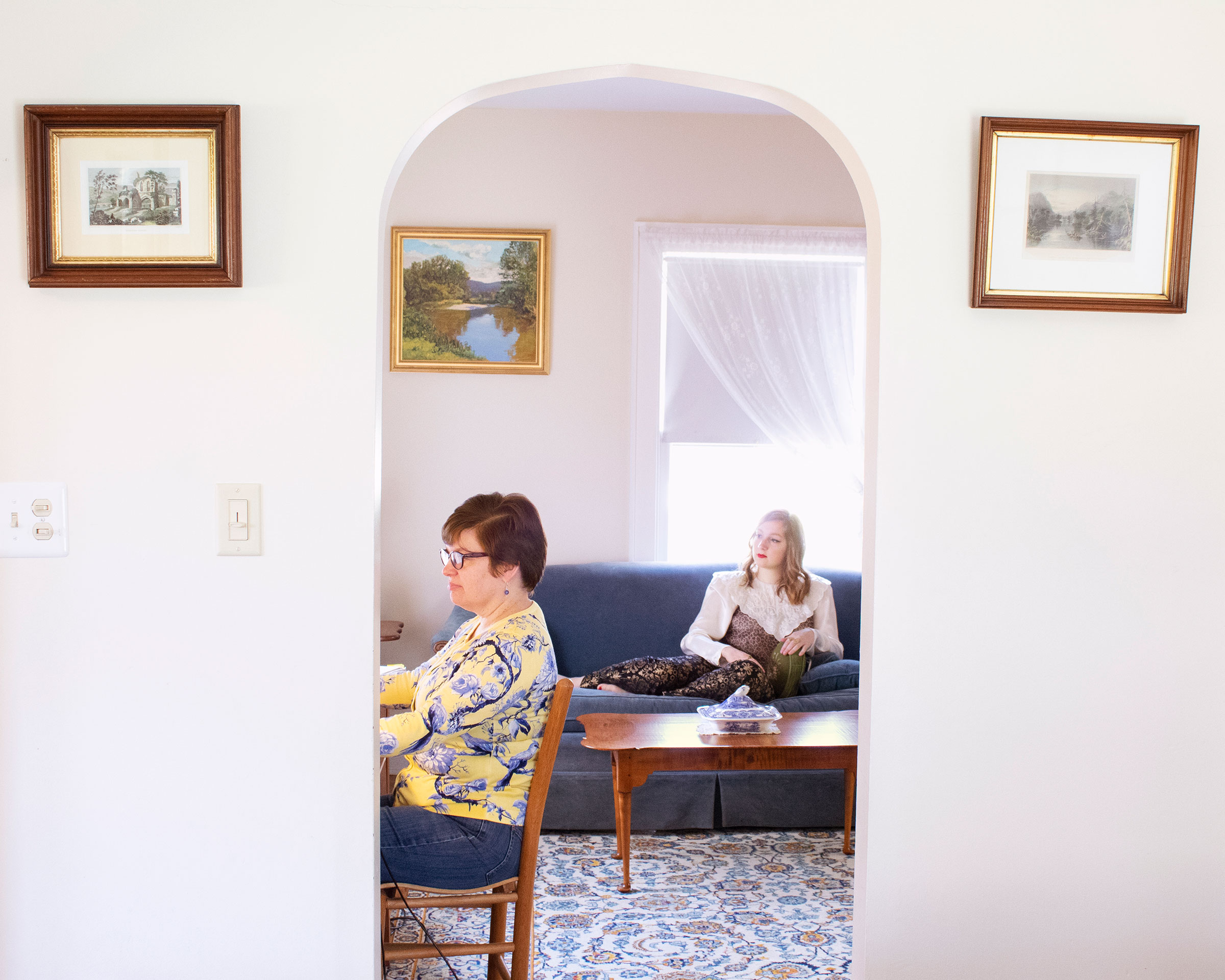
The loss of a milestone like an in–person commencement had a special sting for some families. Arianny Pujols, the first natural-born U.S. citizen in her family and the first to graduate from college, still did her hair and makeup as if she were walking across the stage at Missouri State University. She and her family held a small ceremony in her grandfather’s backyard, and then she stood on the sidewalk in her cap and gown waving at cars with a sign that said “Honk, I did it!” Brenda Sanchez, 22, whose parents are immigrants from Mexico, says they will miss both her graduation from Humboldt State University in California and her sister’s college graduation the next day. “My parents didn’t go to school. They didn’t graduate,” says Sanchez, who is herself an immigrant and is protected from deportation by President Obama’s Deferred Action for Childhood Arrivals policy. “Your heart breaks a little. You did work hard, you did earn this degree, but you’re not going to see yourself walk across that stage.”
Instead of graduating into their future lives, many Class of 2020 seniors feel like they’ve gone backward. “We were ready to be in the world as young adults—not good adults, maybe clumsy adults, but some kind of adult,” says Ilana Goldberg, who recently graduated from Tufts University in an online ceremony. “We’re not in the system anymore, but we’re not far enough out of it to have our footing in the world.”

Eric Kolarik, who was supposed to be sitting at his University of Michigan commencement ceremony in early May, is instead back home in Traverse City, Mich., raking leaves, helping his mom with the dishes, doing the same chores he did in high school. “I’m 22 but I’ve assumed the life of 15-year-old Eric again,” he says. “You feel like a failure to launch.”
If only they knew that a stolen senior spring is the least of their problems. The Class of 2020 is falling through a massive hole in the U.S. social-safety net, into a financial downturn that could define their lives for decades to come.
Graduating seniors have lost on–campus jobs that got them through school. Many haven’t been working for long enough to qualify for full unemployment. If they’ve been listed as dependents on their parents’ taxes, they don’t get a stimulus check. They haven’t had time to build up significant savings.
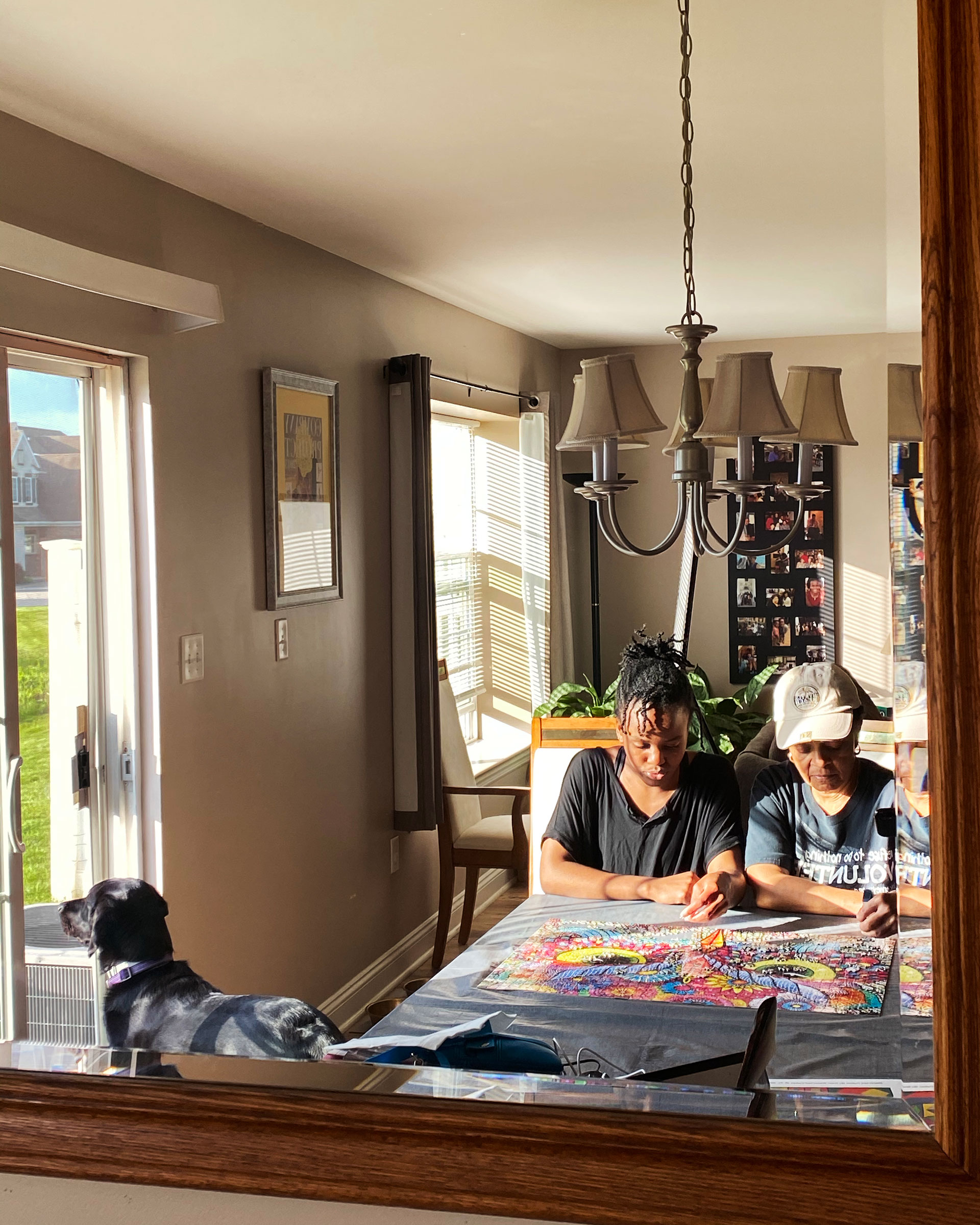
“I’m not sure they’ve fully processed what 25% unemployment, disproportionately affecting younger Americans, will actually mean,” says John Della Volpe, director of polling at Harvard’s Institute of Politics. He recalls that during the last recession, the Class of 2009 scrambled to scoop up opportunities, “like a game of- -musical chairs.” The Class of 2020, by contrast, is essentially frozen in place by a pandemic that has trapped much of the nation inside their homes. “There almost are no opportunities in any sector,” Della Volpe says. “It’s like suspended animation.”
More than 1 in 5 employers surveyed by the National Association of Colleges and Employers in April said they were rescinding their summer internship offers. The overall number of postings on the online jobs platform ZipRecruiter have fallen by nearly half since mid-February, while new postings for entry-level positions have plummeted more than 75%, according to ZipRecruiter labor economist Julia Pollak. A year ago, less experienced job seekers were enjoying brisk wage growth and rosy job prospects. Now, Pollak says, “it’s particularly hard for new graduates.
Sanchez, who worked two jobs and started her own eyelash-extension business to help pay for school, has applied for more than 70 jobs in recent weeks without success. Williams, who dreams of working in the entertainment industry, had no luck with at least 15 jobs and struck out with fellowships that are no longer taking applicants; now she’s cobbling together gig work. Robertson had planned to try to get a job in labor activism; these days, he’s considering graduate school instead.

It’s not just dream jobs that have disappeared. Historically, many young people take positions in the retail or restaurant industries as they find their path. According to Pew, of the roughly 19 million 16-to-24-year-olds in the labor force, more than 9 million were employed in the service sector. Suddenly, a significant chunk of those jobs have evaporated. In April alone, the leisure and hospitality industry lost 47% of its total workforce, with 7.7 million workers newly unemployed, according to the Bureau of Labor Statistics. Which means the economic crisis has hit the youngest harder than any other age group. More than half of Americans under 30 say someone in their household has lost a job or taken a pay cut because of the corona-virus crisis, according to Pew, and the youngest workers are more likely than older generations to say that the pandemic has hurt their finances more than other people.
Graduating into a bad economy can affect everything from future earnings to long-term health and happiness. Researchers have found that beginning a career in the teeth of a recession can depress earnings for 10 years, and trigger broader impacts for decades. One study from UCLA and Northwestern found that the young people who came of age -during the early 1980s recession had higher mortality, and were more likely to get divorced, and less likely to have children. Till von Wachter, a UCLA labor economist who has spent years studying this issue, has a name for these young people who enter the labor force at the worst possible moment: “unlucky graduates.”
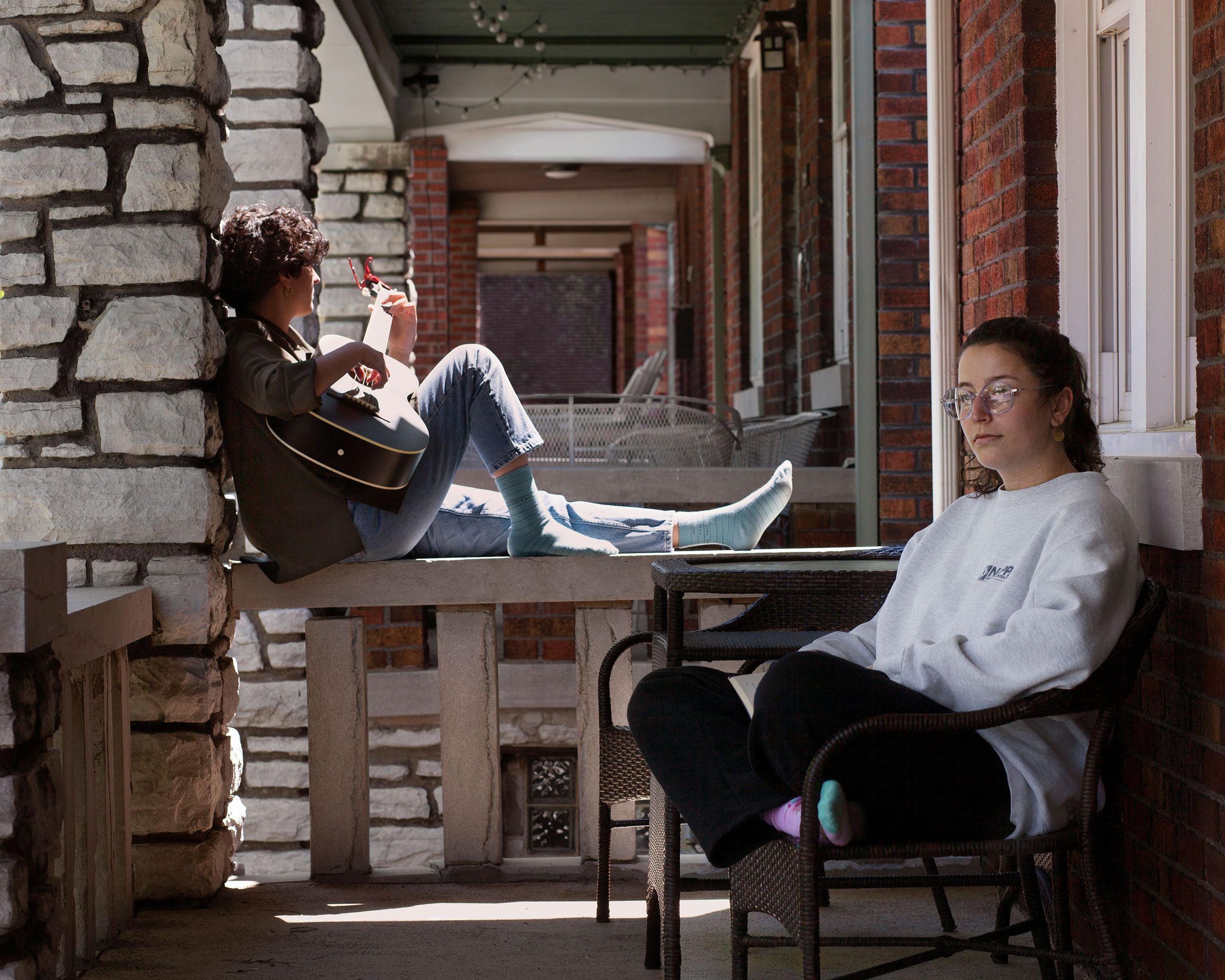
Rather than brave a job market battered by COVID-19, some in the Class of 2020 are seeking refuge in graduate school. But that presents its own conundrum. As of 2019, nearly 7 in 10 college students graduated with student loans, with an average tab of nearly $30,000. Going to graduate school can mean –taking on even more debt. “I’m having to take out grad loans, but I can’t work to pay them off,” says Sean Lange, who plans to enroll in a master’s program in public policy after graduating from New York’s Stony Brook University in an online ceremony in May. He’s not even sure he’ll get his money’s worth for the $18,000 annual tuition. Especially if his classes end up being taught online.
All of this—the forgone memories, the abrupt goodbyes, the lost opportunities—will stay with the Class of 2020 forever. “The coronavirus pandemic is the biggest cultural event since World War II,” says Jean Twenge, a psychologist and author of iGen, who studies millennials and Gen Z. “It’s going to have a huge impact on -everyone, but young adults in particular.”
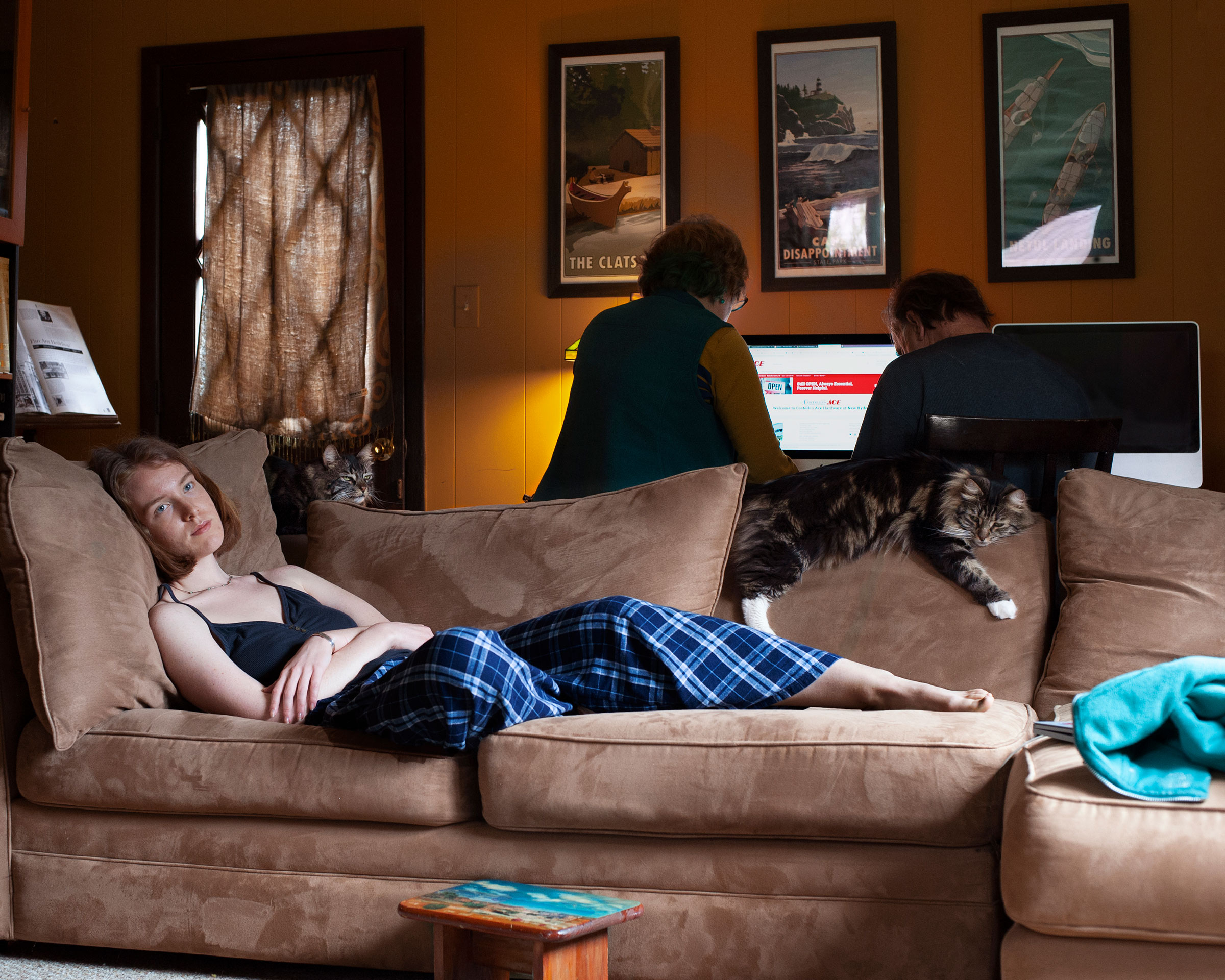
Even before COVID-19, much of Gen Z was disappointed in the government response to the issues facing their generation. These are the students who joined the March for Our Lives gun-safety movement amid near weekly school shootings, and went on strike over inaction on climate change. They were too young to be swept up in Barack Obama’s 2008 campaign, but old enough to gravitate toward Bernie Sanders’ message of progressive revolution in the 2016 primary. Those who were old enough to vote overwhelmingly opposed President Trump in that year’s general election. They favor student debt reform and universal health care. They are the most -racially diverse generation in U.S. history.
Their skepticism of public institutions is largely fueled by a sense that the government is doing too little, not too much. A study last year by Pew Research Center found that 7 in 10 wanted the government to “do more to solve problems.” The divide is generational, not political: more than half of Gen Z Republicans say they want the government to do more. (Less than a third of older Republicans agree.)
Near mandatory use of social media has already contributed to sky-high levels of depression and anxiety among Gen Z, according to Twenge. She analyzed data from the National Survey on Drug Use and Health and found that the number of young adults reporting symptoms of major depression had increased 63% between 2009 and 2017, with a marked turning point around 2012, when smartphone use first became widespread. The pandemic has likely only made them more anxious and disillusioned. Pew found that Americans between 18 and 29 are more likely than older ones to feel depressed during the pandemic, and less hopeful about the future than the senior citizens who are far more vulnerable to the disease caused by the virus.

Which helps explain why young activists view this as a now-or-never moment for their cohort. They know that the pandemic will shape their futures, even if it’s not yet clear exactly how. “Either we will end up with a generation that is far more resilient than earlier generations,” says Varshini Prakash, a leader of the Gen Z–powered Sunrise Movement, “or it could be a generation that is far more nihilistic, and far less likely to engage in our politics because they’ve seen the institutions fail them at the times they really needed it.” The youngest cohort of Americans “could be traumatized for life,” says Robert Reich, a former U.S. Labor Secretary who is now a professor of public policy at University of California, Berkeley. “They could turn economically and socially inward. They could lose faith in all institutions, and they are trending in that direction anyway.”
In other countries, like Egypt, Tunisia and Spain, widespread unemployment among educated young people has led to social unrest or radicalization, mostly because of a sense of betrayal. They think, “we thought there was some kind of bargain, a social contract, that if we play by the rules we get a job at the end of all of this,” says Heath Prince, a research scientist at University of Texas at Austin. So far youth unemployment in the U.S. is mostly correlated with drug addiction and right-wing extremism, Prince says, and hasn’t tipped into the realm of mass uprisings. Then again, -unemployment hasn’t been this high in nearly 80 years.
“My generation isn’t feeling like they’re being spoken to or listened to, and at the same time, a lot of us are becoming economically disenfranchised,” says Robertson, the University of California, Berkeley, graduate who studied the New Deal. “I definitely think a lot of us have lost confidence in the government.”
The only way to address an unemployment rate reminiscent of the 1930s, according to some scholars, students and activists, is a federal government response that echoes the scale of 1930s reforms. President Franklin Delano Roosevelt’s New Deal included major initiatives to get young Americans back to work. Six days after he took office in 1933, Roosevelt proposed the Civilian Conservation Corps: within four months, the federal government had hired 300,000 young men to plant trees and maintain parks and trails. Three million young people were ultimately employed as part of the program. In 1935, Roosevelt created the National Youth Administration (NYA) as part of the Works Progress Administration, designed to give young Americans work-study and job training. (A young Lyndon B. Johnson got an early political break as an administrator of the NYA program in Texas.) The Americans employed by these New Deal programs grew into the selfless, patriotic army that fought World War II, now known as the “Greatest Generation.”
Some Democrats say the COVID-19 pandemic calls for a similar approach. Senator Elizabeth Warren of Massachusetts has called for a “Coronavirus Containment Corps,” to expand the public-health workforce and employ an army of contact-tracers to help fight the spread of the virus. (Warren, an admirer of the New Deal, noted the CCC acronym is no coincidence.) Senator Chris Coons (D., Del.) joined with Senator Bill Cassidy (R., La.) to champion a national service bill that would expand Americorps and fund 750,000 jobs to help train new health care workers to fight COVID-19. And proponents of a Green New Deal, like Prakash and Representative Alexandria Ocasio-Cortez of New York, are working to shape the environmental policy of presumptive Democratic presidential nominee Joe Biden.
Given Republicans’ skepticism of big government programs, none of these ideas are likely to make it through Mitch McConnell’s Senate or onto President Trump’s desk. But the political landscape has already shifted the universe of the possible, with Republicans agreeing to recovery measures—such as sending $1,200 stimulus checks to eligible working Americans—that would have been unthinkable only months ago. And if Democrats reclaim the Senate and the White House, broader reform could be closer than it looks. Young people who are skeptical of government’s ability to solve big problems say their faith can be restored. “I have no faith in this Administration and this government,” explains Lange, the Stony Brook public-policy student. “But I believe in Big Government.”
Eric Kolarik spent his last semester at the University of Michigan working on a paper about the 1918 flu pandemic. Now, with classes canceled and his job search on ice, his copy of The Great Influenza is on his childhood bookshelf, alongside his old high school copies of The Crucible and Of Mice and Men. “There will be a sort of unity that the Class of 2020 has with each other, and it’s not fond memories,” he says. “People will say, ‘You’re the Class of 2020,’ and everyone will know what that meant.”
The pandemic has marked the end of one phase for this unlucky cohort. The recovery could mark the beginning of another.
Cover photograph in collaboration with Melissa Nesta
More Must-Reads from TIME
- L.A. Fires Show Reality of 1.5°C of Warming
- Home Losses From L.A. Fires Hasten ‘An Uninsurable Future’
- The Women Refusing to Participate in Trump’s Economy
- Bad Bunny On Heartbreak and New Album
- How to Dress Warmly for Cold Weather
- We’re Lucky to Have Been Alive in the Age of David Lynch
- The Motivational Trick That Makes You Exercise Harder
- Column: No One Won The War in Gaza
Write to Charlotte Alter at charlotte.alter@time.com
